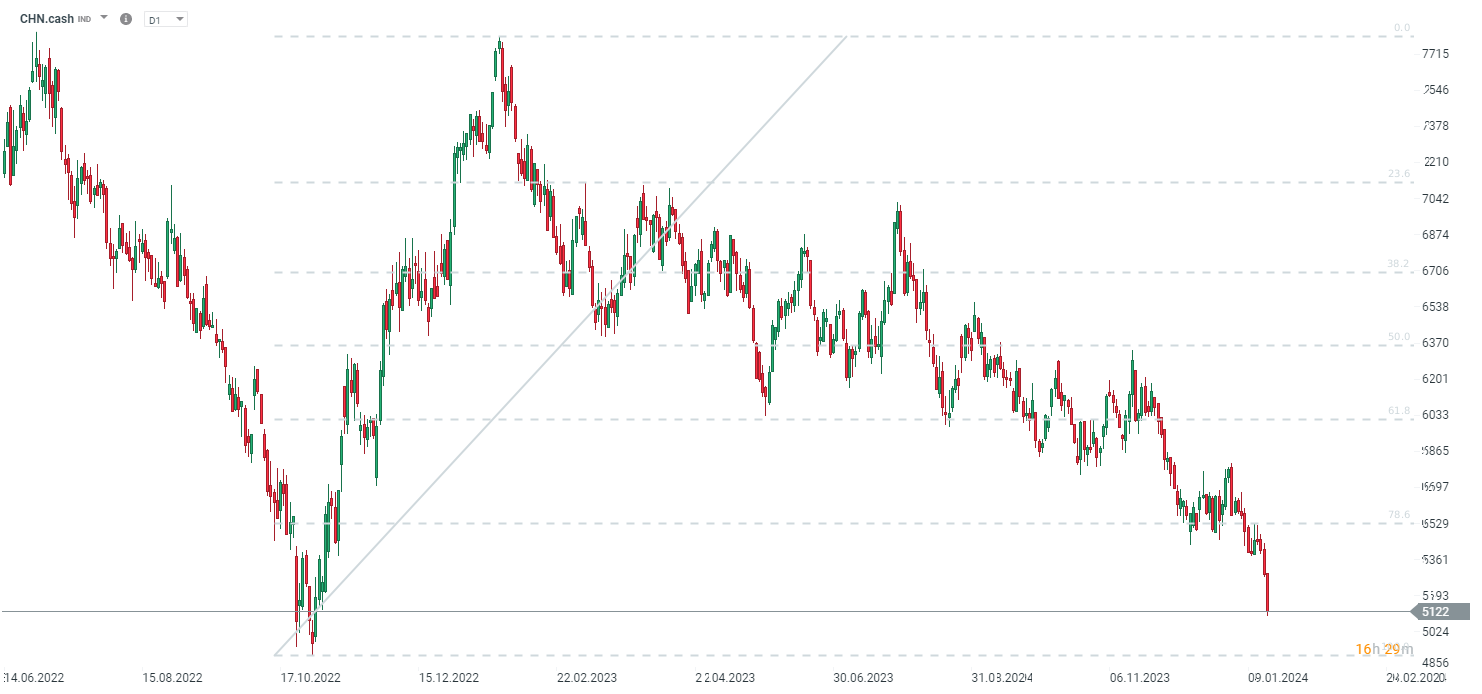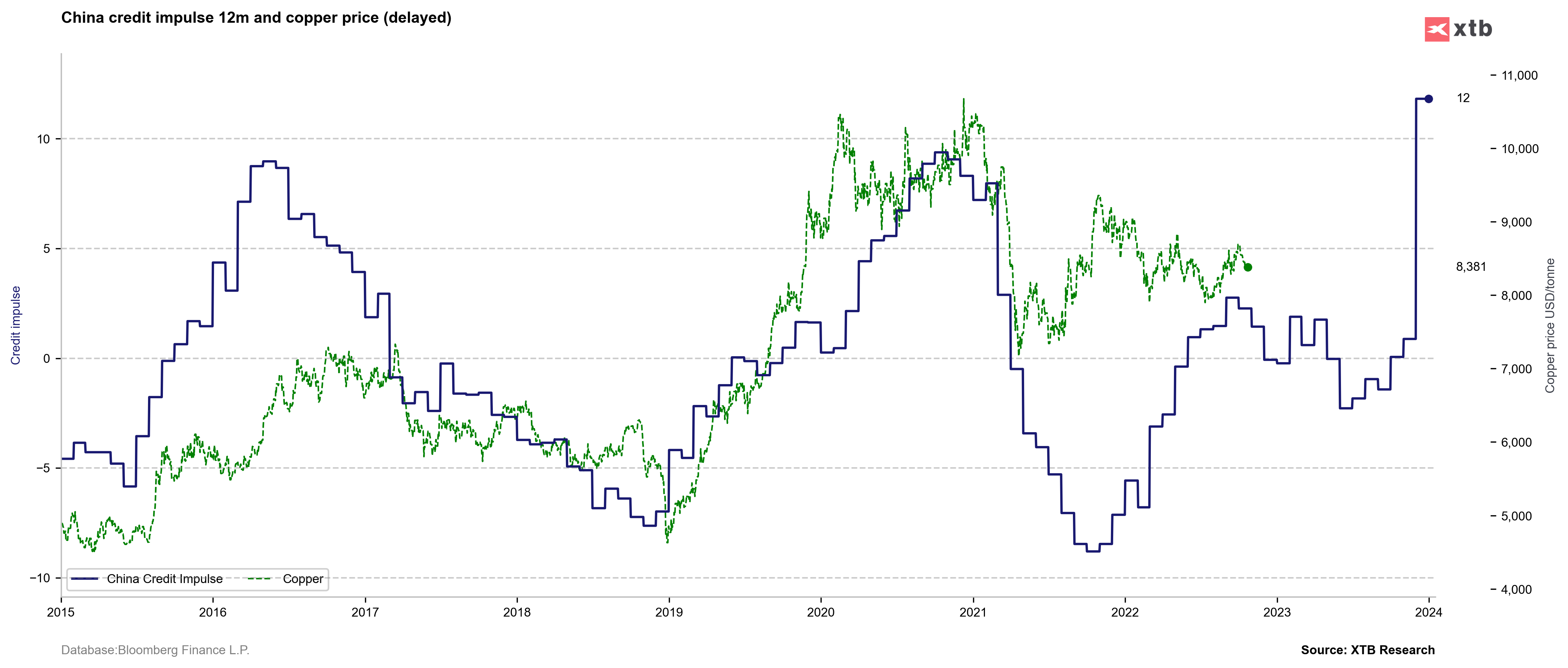- China's Q4 GDP grew by 5.2% y/y against expectations of 5.3% y/y. Earlier it was 4.9% y/y
- Quarterly growth was 1.0% y/y, in line with expectations at the previous 1.3% y/y level
- Retail sales grow only 7.4% y/y in December, against expectations of 8.0% y/y and the previous level of 10.1% y/y
- However, industrial production is growing by 6.8% y/y against expectations of 6.6% y/y and the same previous level
In response to the weak macro data, we see Chinese indices plunging today. The Hang Seng China Enterprises index is losing the most, mainly due to shares of real estate-related companies, but technology companies, such as those linked to Alibaba, are also losing. Alibaba Health Information Technology was the worst-performing company, losing 7.4%, while Longfor Group, a real estate management company, lost 5.7%.
In addition, it is worth citing yesterday's words from Christopher Waller of the Federal Reserve, who indicated that monetary easing will come, but definitely at a slower pace than the market anticipates. In view of this, yields rose, and we are also seeing a strong pullback on US100.
The CHN.cash contract on Hang Seng companies (Chinese companies listed in Hong Kong) is losing 3.6% today, but is down more than 10% year-to-date. The contract is approaching the local low of last October. It is worth mentioning that these levels are close to the lowest ever since 2005, when the index started. At the same time, there has been some hope in China for a recovery, looking at a marked increase in lending. However, it's worth remembering that credit action is acting with a lag, as the chart below with copper may indicate.
Source: xStation5
We can see a powerful rebound in credit impulse in China. However, it's worth remembering that in real terms, it acts on the economy with a lag of about 12 to18 months, and we often see a very high correlation (also lagged) with copper or the PMI. By correlating with PMI, we should also expect a correlation with GDP itself, which shows that we should expect a recovery in China over a 12-month horizon, barring other negative events.  Source: Bloomberg Finance LP, XTB
Source: Bloomberg Finance LP, XTB

Daily Summary - Powerful NFP report could delay Fed rate cuts

US OPEN: Blowout Payrolls Signal Slower Path for Rate Cuts?

BREAKING: US100 jumps amid stronger than expected US NFP report

Market wrap: Oil gains amid US - Iran tensions 📈 European indices muted before US NFP report


